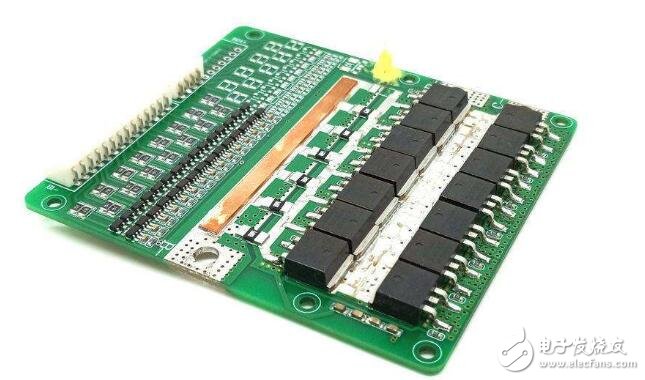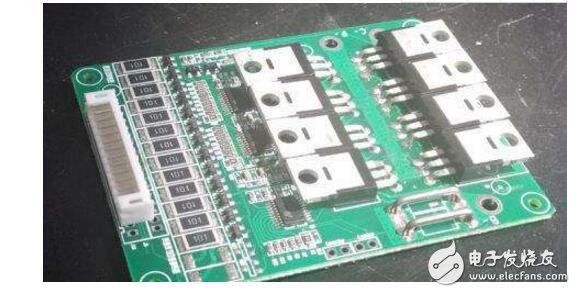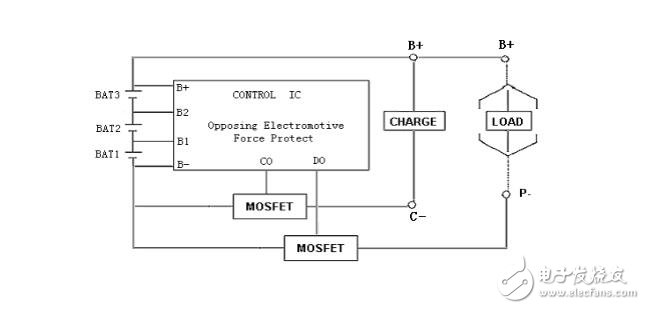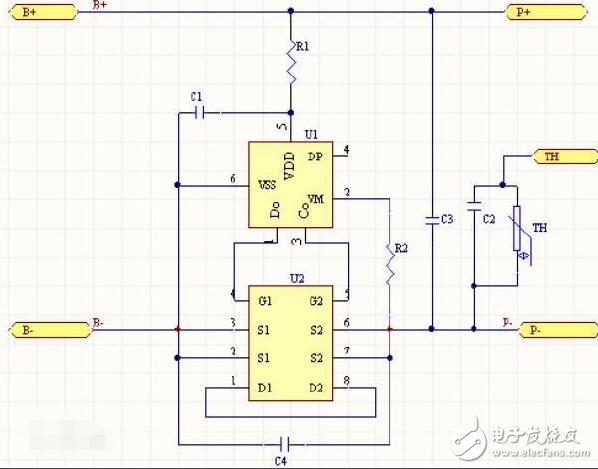**What is a Lithium Battery Protection Board?**
A lithium battery protection board is an essential component designed to safeguard lithium battery packs during charging and discharging. It ensures that the voltage difference between individual cells remains within a specified range (typically ±20mV), enabling cell balancing. This helps improve the efficiency and safety of series-connected batteries. Additionally, it monitors critical conditions such as overvoltage, undervoltage, overcurrent, short circuits, and overheating, providing protection and extending the battery's lifespan. Undervoltage protection prevents damage caused by deep discharge, ensuring each cell is safely managed throughout its usage cycle.
A complete lithium battery consists of two main parts: the battery core and the protection board. The core includes the positive electrode, separator, negative electrode, and electrolyte, all wound or layered into a compact structure. While many users are unaware of the protection board’s role, it plays a crucial part in maintaining battery health. It doesn’t charge the battery but instead acts as a safety mechanism, offering features like short-circuit protection and current regulation.

**Lithium Battery Protection Board Technical Parameters**
- Balancing Current: 80mA (at VCELL = 4.20V)
- Balancing Control Point: 4.18±0.03V
- Overcharge Threshold: 4.25±0.05V (optional: 4.30±0.05V)
- Overdischarge Threshold: 2.90±0.08V (optional: 2.40±0.05V)
- Overdischarge Delay: 5ms
- Overdischarge Release: Disables load when cell voltage drops below threshold
- Overcurrent Release: Disconnects load automatically
- Temperature Protection: Requires a recoverable temperature switch
- Working Current: Up to 15A (customizable per customer needs)
- Static Power Consumption: <0.5mA
- Short-Circuit Protection: Automatically disconnects and resets
- Main Functions: Overcharge, overdischarge, short-circuit, overcurrent, temperature, and balance protection
The board has separate charging and discharging ports. B+ and B- connect to the battery’s positive and negative terminals, while P+ and P- are the output terminals. C- is the charging port’s negative terminal, and all pads are via-type with 3mm holes. Battery detection interfaces use DC pins for signal transmission.

**Detailed Analysis of the Lithium Battery Protection Board Principle**
Lithium battery protection boards are vital in ensuring safe and efficient operation. They consist of a protection IC and a MOSFET string, which act as high-speed switches in the discharge circuit. The IC monitors voltage differences and controls the MOSFET to trigger protective actions when necessary. Additional components like resistors, capacitors, FUSE, PTC, NTC, ID, and memory chips support the board’s functionality.
During charging, lithium batteries require constant current followed by constant voltage. If the charging process is not properly controlled, overcharging can occur, potentially damaging the battery. The protection board activates overcharge protection by cutting off the current through the MOSFET, preventing further charging and ensuring safety.

**Why Do Some Lithium Battery Protection Boards Need to Be Activated?**
Not all protection boards require activation, but older models often do. This was done to prevent static discharge and reduce energy loss during storage. In these designs, the protection circuit only starts working after the control circuit is powered up, usually through a charger. As a result, the first time the battery is used, the protection board may not function until it is charged.
**How to Activate a Lithium Battery Protection Board**
If the board is in a protected state, you may need to either fully charge the battery or disconnect the load. Alternatively, you can briefly short the B- (battery negative) and P- (discharge negative) terminals to release the protection. However, avoid doing this under heavy load, as it could cause sparks. The short circuit resets the MOSFET’s voltage level, allowing the board to resume normal operation.
Note: Most boards are designed to handle this process without damage, even if they don’t work immediately after being connected.

99% Ceramic Accessories,99 Porcelain Square Pieces,Ceramic Square Pieces,99 Ceramic Square Pieces
Yixing Guanming Special Ceramic Technology Co., Ltd , https://www.guanmingceramic.com
